- Articles
- Posted
Who is Trying to Divide Syria? A Composed Dialogue with Aldar Khalil
Aldar Khalil, one of the most prominent leaders of the Democratic Union Party and the Autonomous Administration Movement, published an article under the title “Who is Dividing Syria?” (Arabic) on the 11th of this month on the Ronahi website. In the article, Mr. Khalil discusses the nature of the Russian role in the Syrian crisis, by responding to statements by the Russian Foreign Ministry in which he warns of the US role in Syria in general, and in Syria’s northeast in particular, warning that the US seeks to break Syria into pieces.
We will try to discuss some of what appeared in the aforementioned article, within the framework of the need for a realistic understanding of what the role of international powers is, and how to properly deal with it by the Syrian forces that are trying to get the country out of the existential dilemma through which it is going.
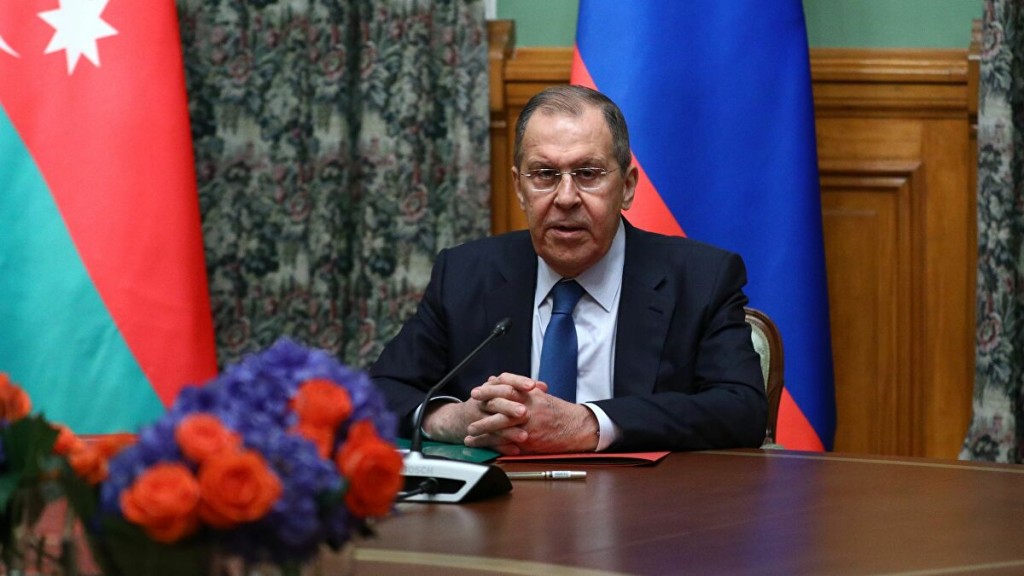
About Journalistic “Professionalism” and Investment Thereof
Before going into details, it is imperative to clarify a very important issue, which is that although Mr. Khalil did not clarify this in his article, but he based it on a statement attributed to Lavrov by Ibrahim Hamidi (a journalist) in an article of his in Asharq Al-Awsat on the same day entitled: “Syrian File: Moscow, Damascus Disagree Over 10 Contentious Points”.
In that article, Hamidi attributed to Lavrov saying during an interview with Al-Arabiya: “The second contentious point is the eastern side of the Euphrates, where the Americans are illegally present with the separatist forces, and are toying with the Kurds in an irresponsible way.” We wrote “the separatist forces” in bold, because it is a distortion of what Lavrov said. (Editor’s Note: the above quote appeared in the Arabic version of the aforementioned article, but not in the English version!).
Lavrov’s meeting with Al-Arabiya is available on Al-Arabiya website and YouTube channel. One can go back to the sentence attributed to Lavrov at exactly 15:30 of the video, where he says literally: “The second hot spot is on the eastern bank of the Euphrates, where there is illegal presence of US forces, coupled with the US’s reinforcement of separatist trends, and they are toying with the Kurdish card in an irresponsible way.”
That is, the Russian Foreign Minister did not describe the Autonomous Administration as a “separation project” as Mr. Khalil cites, nor did he describe SDF as separatist. Rather, he spoke exactly about the US’s encouragement of separatist trends, and the difference is huge between what Hamidi mentioned and the original quote in the political meanings and dimensions. There is also a huge difference in whom it serves with the deliberate distortion. We do not think that it is justified or acceptable for a politician to base his positions on newspaper articles and what they report as being said by officials without going back to the original, especially when the issue is so sensitive, and when the original is available and easy to access.
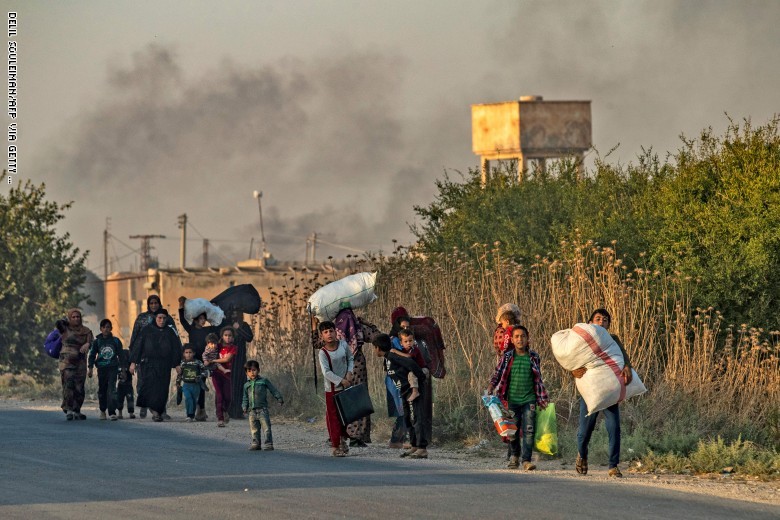
The Evaluation Criterion
Going back to Mr. Khalil’s handling logic, we think it is useful to begin with reminding that the conflict in Syria has become a complex one, with more than one track. On the one hand it is a conflict among Syrians, and on the other hand it is an international conflict over and around Syria. The separation line in this conflict, in all its tracks, is about the position towards the direction of the evolution of the Syrian situation; that is, about the form and nature of the political system, the structure of the Syrian state, its territorial integrity, and Syria’s position within the web of international and regional relations. In light of the high level of complexity that permeated the crisis, Syria has become existentially threatened, that is, its unity as a political and geographical entity is threatened. For this reason, the consensual political solution has become the only solution to the Syrian crisis.
Since this is the case, any serious force in Syria should determine its position from all sides, based on the actual position of those sides from UNSCR 2254, whether the sides are international, regional, or Syrian. Whether it is the Russian, the American, the Autonomous Administration, Turkey, Iran, the regime, or the opposition.
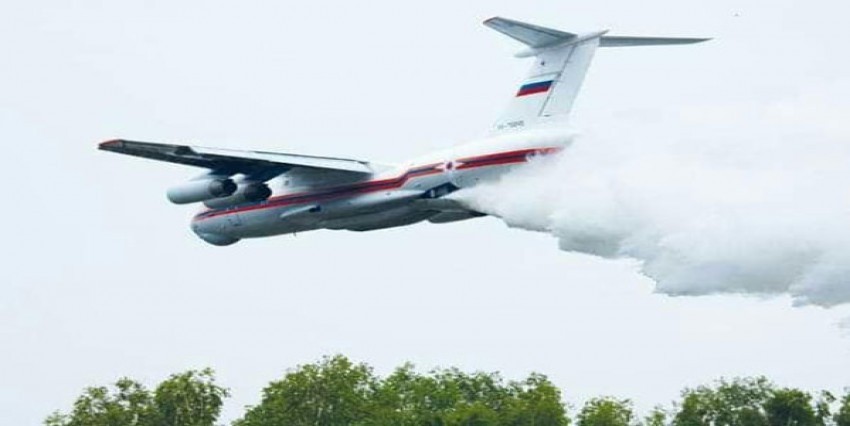
A Curious Timing!
The timing of Mr. Khalil’s article is curious in the political sense, as it was published amid a widespread and recently renewed campaign to demonize the Russian role in the Syrian crisis. This campaign in which “contradictory” Syrian sides are participating, from the loyalists and the opposition, each from their position and with the discourse that suits their audience, regardless of the intentions of each side, but in a way that leads to the same goal. The goal is to interfere with the Russian role in the political solution in a manner that increases the hypothetical playing space for Western sides, which is a space that is objectively shrinking day after day.
On the other hand, the article came after the discrepancies between the Russian side and the regime surfaced in more than one position, including the position on the experience of the Autonomous Administration itself, which was reflected in the difference of views during the joint press conference between the Syrian and Russian foreign ministers with regards to the memorandum of understanding that was signed between the People’s Will Party and the Syrian Democratic Council.
Limited Understanding
The problem of many of the Syrian forces in the regime and the opposition, and some within the Autonomous Administration, is the attempt to play on international and regional contradictions to achieve immediate and special gains, or to seek to have this international side or that adopt each force’s political project as it is. This contradicts the high level of complexity in the Syrian issue, and the entanglement and conflict of international, regional, and Syrian interests around it. It also contradicts the principle of political consensus, which constitutes the essence and spirit of UNSCR 2254 as one of the foundations of the solution, and thus these forces become in a position that impedes the solution, whether they know it or not.
It is not required of the Autonomous Administration, the People’s Will Party, or any Syrian side, to bet on international forces to have its project be the main one. Determining which project depends exclusively on the Syrian people, and having any international side come in to support a Syrian side outside the framework of international law, to install its project, becomes interference. This is mainly because the task of the international forces with regard to the political solution lies exclusively in three basic issues: the war on terrorism, neutralizing the role of regional and international powers from the internal conflict tracks, securing the appropriate atmosphere for Syrians – all Syrians – to determine their own destiny, through the full implementation of UNSCR 2254, including a new constitution, free and fair elections at all levels, in addition to all the other parts of the resolution, leading to a new political system.
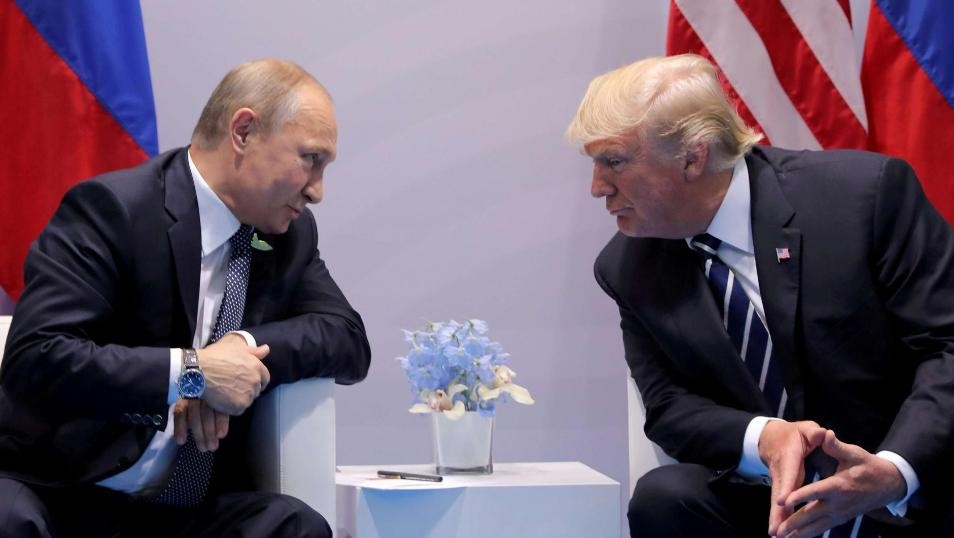
The Russian-American Conflict
It is clear from the words of the Russian diplomacy (the original, not the distorted), to which Mr. Khalil responds in his article, that it directly accuses the American side of attempting to divide Syria. That is, side mainly intended by the conversation or the accusation is the American side, and in fact it is a warning based on facts, I believe. This view is shared by a wide spectrum of Syrians, and the reality of this warning lies in several facts:
First: The bitter historical experience and the immorality of the American role in this aspect, and in many parts of the world.
Second: When Washington is unable to complete the dividing for some reason or another, it works to maintain a state of non-solution, which leads to achieving the minimum level of division, i.e. chaos, and amid chaos no one will win. Indeed, furthermore, the one who loses is the one holding the weakest card in the existing balances, and it is no secret in this context that the US envoy has publicly stated that his mission is to turn Syria into a quagmire for Russia. I think that someone who is observing things does not need to be very intelligent to discover the consequences of this for Syria and Syrians.
Third: It is not rational, from the point of view of the Autonomous Administration project itself, for Mr. Khalil to put himself in a confrontation with a side like Russia, which has its weight in the international arena in general, and the Syrian in particular, regardless of the general position from this side. Not to mention that this side is the only and first of the international powers to speak out and declare its frank position on all Syrian issues from the beginning, including the representation of the Autonomous Administration in the negotiations for a political solution, and the need to take into account national diversity in building the new Syria. This side also kept the lines of communication open with all the Syrian forces even those that are hostile to it, so that it can play the role of the mediator, without selling anyone delusions, implicating anyone, blackmailing anyone, or pushing anyone into dilemmas, as Washington has done with all the forces that have bet on it since 2011. Anyone can recall the number of times the US deceived Syrians who bet on it, and how it pushed them from one impasse to one.
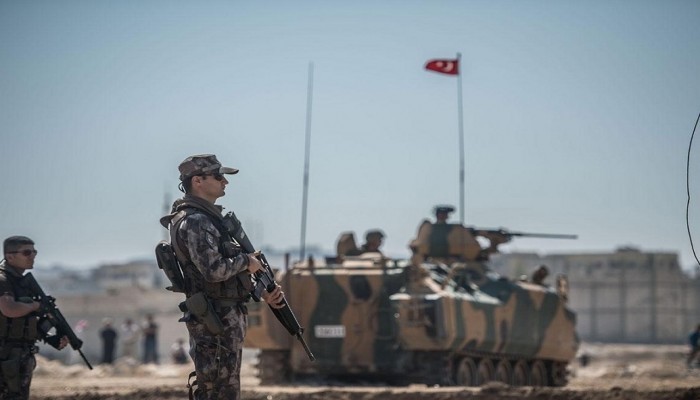
Internationalization is not a Solution
One of the Autonomous Administration’s biggest mistakes, we believe, is the nature and quality of engaging in the international and regional polarization process over the Syrian issue in general, and the Kurdish issue in particular. The article being discussed here constitutes a concrete example and continuation of this error. Furthermore, also walking on the edges of the American internal conflict itself, in light of the division that the American administration suffers from over many international files, including the Syrian issue, especially since all of this is taking place in light of an anxious and fragile balance, its general direction is not in favor of the US, and in which axis and alignments can change at any moment.
Betting on the American side in light of the sharp international polarization, and the American internal division that is no less severe, is a walk in a minefield. We saw its first chapter in Afrin and Ras al-Ain in particular, the responsibility for which is being put on the Russia without the slightest right, in complete contradiction with the facts, which Mr. Khalil knows very well.
Not to mention the strange absence of any reference to the clear and very open American role in opening the door to Turkey’s occupation of Tel Abyad and Ras al-Ain and hundreds of villages and sub-districts in northeastern Syria as part of its military operation which it called “Peace Spring”, which began on 9 October 2019, less than three days after the “sudden” withdrawal of US forces from those areas. That operation could have extended to occupy a much larger area had it not been for the Russian-Turkish agreement on 15 October 2019, which stopped the operation at the boundaries that it had reached.
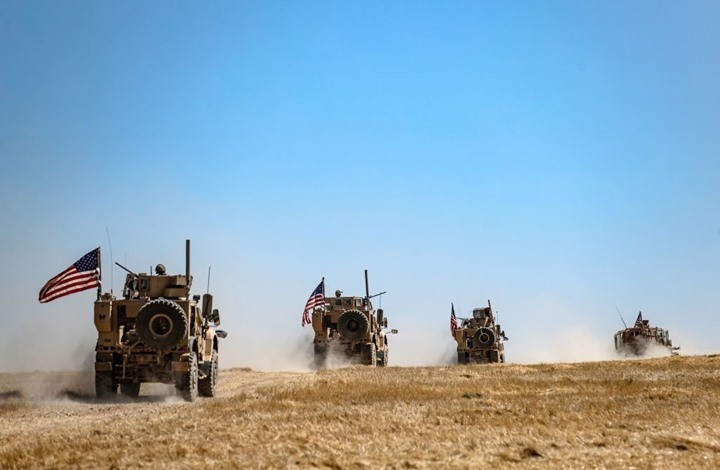
Who Brought the American?
SDF is not who brought the Americans to Syria, and whoever claims that is wrong. The problem is not here. Rather, the problem is in the illusions of wagering on US presence during the making of policies and visions. The problem is in thinking that US presence is continuous and eternal. The problem is in the positive interaction that some follow with the US investment in the Syrian crisis, though such an illusion immediately puts the Autonomous Administration project and the Kurdish issue before three serious challenges:
The first: the relationship with the partners of the place. Relying on the US creates a general negative reaction, going beyond the Syrian “elites” in the regime and the opposition, to reach popular public opinion. Perhaps what best explains the importance of this aspect is the chauvinism, both the official and the opposition, relying on it during the past decades in distorting the Kurdish issue and inciting public opinion against the Kurds, which is the opposite of what is required by the project of the (democratic nation) that crosses through national, sectarian, and religious lines.
The second: inciting the regional neighboring countries, collectively and individually.
The third: subjecting the Syrian issue in general, and the Kurdish issue in particular, to the pragmatism and immorality of the American role.
It goes without saying that the aforementioned set of observations does not in any way cancel out several facts related to the Autonomous Administration experience, including:
- The prominent role this current has played in confronting terrorism and extremism, and the major sacrifices it has made in this field.
- This project is considered one of the material carriers of the Kurdish issue, which really requires a national-democratic solution within the framework of building a new Syria.
- The possibility of benefiting from this experience in terms of securing the popular power structures in the regions, after clearing the not-so-few negatives about it.
The danger to the unity of Syria, which began because of those positions adopted by the extremists of the sides to the conflict in the regime and the opposition, and continued with the increasing level of external interference, and increased in direct proportion to the increase of this intervention, today comes primarily from that side that has worked since the first day with the logic of managing the crisis and maintaining the state of no-solution. That side lured everyone into the violence playground, ignoring the growing phenomenon of terrorism and its coming to Syria, then exploiting its presence for direct military intervention. Today, this side openly declares that it wants “to turn Syria into a quagmire” in its international conflicts, in order to exhaust its opponents of the rising forces, as long as it is no longer able, in light of its retreat, to resolve the situation in its favor.
It remains for us to reaffirm and say, it is not beneficial either from the point of view of the general Syrian national interests, nor from the point of view of resolving the Kurdish issue in Syria, for Mr. Khalil to position himself in the wrong place within the acute international and regional polarization. What is required is neutrality at least, as long as the problem is originally among Syrians. Bringing it back to Syrians is an indispensable condition for reaching a solution. As for the assumption that more internationalization will lead to a solution, this is definitely wrong.
In this context, distrust of the regime, concern about the aggressive Turkish role, and even suspicion of Russia, may be justified for Mr. Khalil, as long as he starts from the special to the general in reading the Syrian crisis. However, the problem is that the realistic result of such a vision leads to the isolation of his project at the Syrian, regional, and international levels, and objectively leading to trusting only one side, the Americans. This is exactly what Mr. Khalil’s article says between the lines, even though the American has proven through concrete experience more than once that for the US the Kurdish card is just a pressure card that it uses whenever it wants, regardless of the results at the general Syrian level, and at the Kurdish level.
What is worth remembering in this context is that summoning external intervention and relying on it, on the part of some of the Syrian opposition sides, is like a winning “lottery ticket” for the regime’s extremists, as it has completely transformed the course of events, from being a peaceful protesting movement, into a complex crisis. Today, the explicit or indirect call to keep the American will perform the same function, noting that the American possesses old cards that have been recently reproduced. This is represented by statements issued by the remnants of the Syrian Coalition regarding the situation in the northeast, which presented through those statements adoption of the Americans, thus again becoming tools with a new job in some areas under the control of the Autonomous Administration.


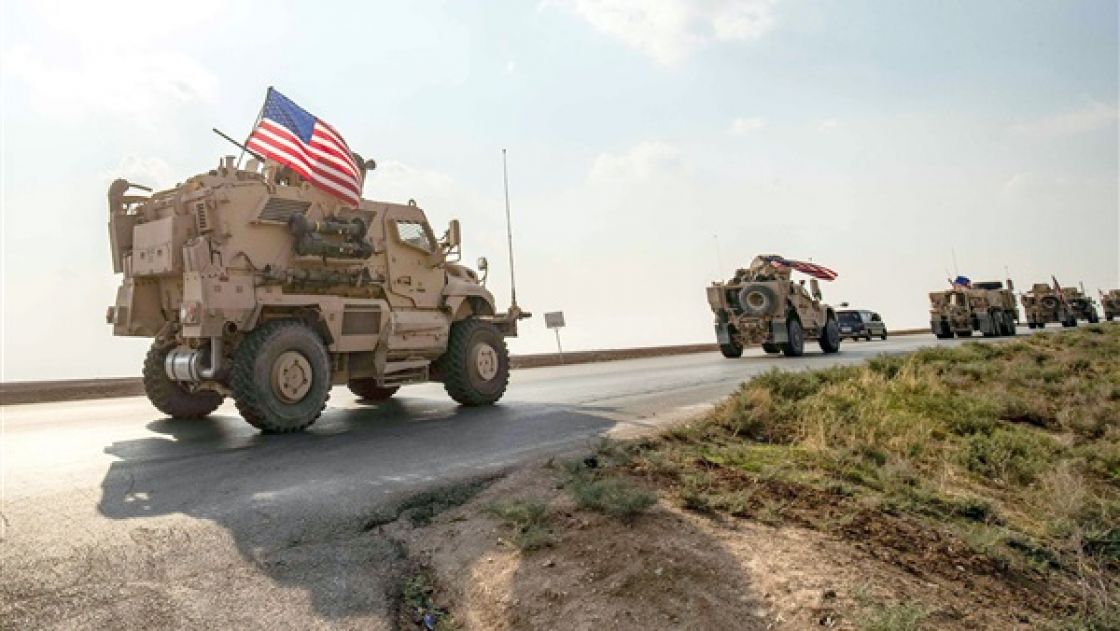
 Issam Hoj
Issam Hoj